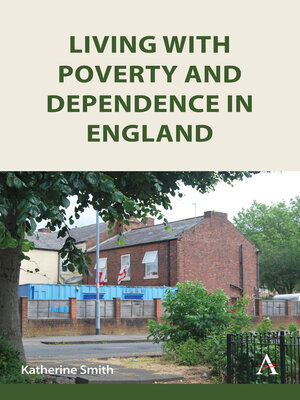
Sign up to save your library
With an OverDrive account, you can save your favorite libraries for at-a-glance information about availability. Find out more about OverDrive accounts.
Find this title in Libby, the library reading app by OverDrive.



Search for a digital library with this title
Title found at these libraries:
| Loading... |
The book is based on nearly a decade (2011–2020) of sustained ethnographic research within and across households in Harpurhey, North Manchester, England. Harpurhey is a suburban area in Manchester, located just three and a half miles northeast of the city centre. This book interrogates the everyday lives of people in Harpurhey ethnographically, placing their lives and agency at the centre of analysis. It explores the everyday lives of people who live with poverty and are rely upon state welfare support to make ends meet. Analytically, the arguments in this book begin by making a distinction between the production of poverty as a political, economic and ideological effect of capitalist processes and state activity, and the everyday, mundane choices and behaviours of the people who manage those effects (cf. Goode and Maskovsky 2001). Each chapter shows what may be concealed and revealed in interpersonal relationships between people living with poverty and in multiple interdependencies.
|This book explores ethnographically moments when the issue of poverty and 'being poor' feature in everyday lives and interactions in Harpurhey. The book begins by situating the production of poverty outside the everyday lives of people in Harpurhey to better focus on its lived effects.
The chapters that follow provide a nuanced understanding of what it means for people in Harpurhey to live with poverty. Each chapter provides intimate ethnographic insights into the ways in which relationships are forged, maintained, ended and re-emerge in the context of the lived experience of poverty, and in the knowledge that welfare reforms, public spending cuts and social and political stigma will remain enduring issues for them into the future. The relationships between persons and between persons and the state that are explored in this book are necessarily unstable and contingent. The expression of personal needs, circumstances, moral frameworks and imaginations of the future in an ever-changing post-welfare landscape are at the centre of analysis.
Whether individuals are navigating the interstices of the state for (largely) financial support or the intricate interpersonal relationships and obligations they have with each other for moral, social and financial support, the viability of the person to take control over their own assets and futures, and to be recognised in so doing, is paramount to the sociality and moral reckoning of everyday life. By exploring the everyday lives of people who are managing to make ends meet whilst living with poverty, this book asks how poverty and multiple interdependencies are experienced, negotiated and used in the maintenance, dissolution and recuperation of dynamic kinship, and neighbourly and friendship relations of support.






